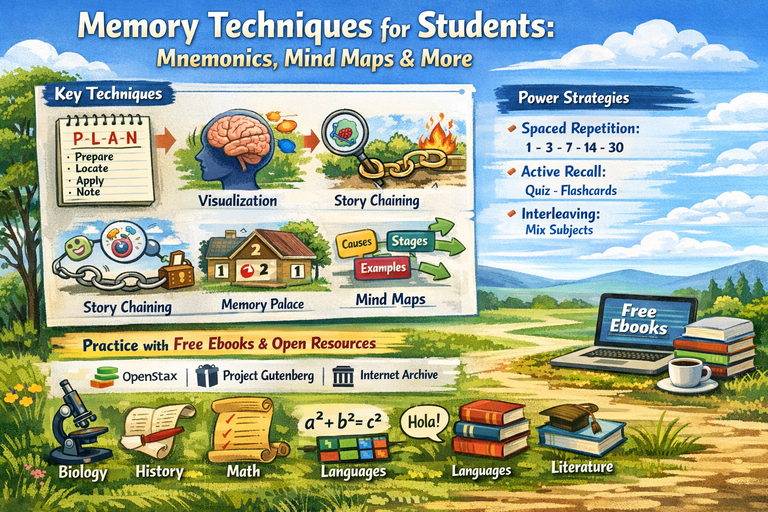Reimagining Capitalism Through Financial Storytelling
In the age of global crises, economic inequality, and corporate overreach, conversations about capitalism are louder and more urgent than ever. While economists and policymakers dominate the headlines, a quieter, yet equally powerful revolution is unfolding in the world of literature—specifically in financial storytelling.
At Junkybooks, we’ve long believed that novels and narratives aren't just entertainment; they’re blueprints for how people interpret the systems around them. Finance-themed fiction doesn't just dramatize wealth and markets—it reshapes how readers perceive the capitalist structure itself.
So, how do authors reimagine capitalism through fiction? And what can readers and investors learn from these literary reinterpretations?
Let’s dive into the world of financial storytelling to explore how capitalism is being challenged, examined, and even redefined.
Storytelling: The Human Lens on Capitalism
Numbers can tell you what happened, but stories tell you why it matters. Financial novels bridge the gap between data and emotion, transforming abstract market mechanisms into lived human experiences. Through flawed characters, shifting fortunes, and moral ambiguity, authors create compelling narratives that hold a mirror to capitalism.
Think of it this way:
A stock ticker won’t explain a housing bubble. But a novel about a family who loses their home during a financial crisis can make the consequences real, visceral, and unforgettable.
From Rags to Riches—and Beyond
Capitalism has always had a favored literary arc: the rags-to-riches story. From Horatio Alger’s 19th-century fables to today’s tech startup sagas, the idea that hard work leads to success is deeply woven into the American—and capitalist—imagination.
However, modern financial fiction has begun to complicate this narrative. Authors now explore what happens after success, or when it never arrives. They ask:
-
What is the cost of ambition?
-
What happens when the market fails you?
-
Is the system fair—or rigged from the start?
Books like The Bonfire of the Vanities by Tom Wolfe or American Psycho by Bret Easton Ellis showcase capitalism’s darker side, peeling back the glamour to reveal a world ruled by vanity, greed, and disconnection.
Capitalism as Character
In many financial novels, capitalism itself becomes a character—a looming, omnipresent force shaping people’s lives. Sometimes it's benevolent, offering opportunity and innovation. Other times, it's predatory, devouring individuals in the name of profit.
Take Atlas Shrugged by Ayn Rand. For some, it's a celebration of free-market capitalism and individualism. For others, it’s a cautionary tale about unbridled ego and deregulation. Either way, it exemplifies how storytelling allows readers to see capitalism not as a neutral system but as a moral and emotional battleground.
At Junkybooks, we believe this personification is essential. It helps readers grapple with complex issues—like deregulation, labor exploitation, and globalization—on a more intimate, human scale.
Financial Fiction as Critique
While some novels uphold capitalist ideals, others actively criticize them. In these stories, capitalism is portrayed as flawed, often prioritizing profit over people.
Books like Capital by John Lanchester and House of Cards by William D. Cohan dissect the hubris and short-sightedness that led to financial collapses. They explore themes of corruption, systemic inequality, and moral ambiguity in the corporate world.
These novels ask hard questions:
-
Who benefits from capitalism?
-
Who gets left behind?
-
Can the system be fixed—or does it need to be replaced?
Through financial storytelling, authors offer not just critique, but alternatives—new ways of imagining how economies could work.
Rebuilding Capitalism Through Hopeful Narratives
Not all financial fiction is bleak. Some authors choose to reimagine capitalism in a more hopeful, equitable light. They introduce visionary entrepreneurs, ethical investors, and companies that prioritize sustainability, diversity, and long-term well-being over short-term profits.
In these novels, capitalism becomes a tool—not a tyrant. It’s a system that can be reshaped to serve society, not just shareholders.
Books that explore green finance, social entrepreneurship, and ethical investing point to a future where capitalism and compassion coexist.
This form of storytelling is especially powerful for young entrepreneurs and startup founders, inspiring them to think beyond quarterly earnings and embrace purpose-driven business models.
Financial Novels as Education Tools
At Junkybooks, we often say: “Read the stories before you read the spreadsheets.” Why? Because financial novels make abstract theories tangible. They help readers:
-
Understand market psychology
-
Recognize economic cycles
-
See the emotional toll of financial decisions
-
Reflect on personal values in the context of wealth
Books like Reminiscences of a Stock Operator and Liar’s Poker are often used by financial educators—not for their technical accuracy, but for their ability to show what it feels like to navigate volatile markets and high-stakes environments.
Through storytelling, readers develop empathy, insight, and critical thinking—skills every investor needs.
The Intersection of Art and Economics
Reimagining capitalism through literature isn’t just a political act—it’s an artistic one. Novelists bring creativity and emotion to systems often perceived as cold or technical.
This intersection of art and economics is where real transformation begins. Financial fiction allows readers to see:
-
The emotional aftermath of layoffs
-
The psychological weight of debt
-
The moral compromises behind million-dollar deals
-
The fragility of power in boardrooms and trading floors
By humanizing these experiences, literature fosters dialogue and redefines what success, value, and fairness mean in a capitalist world.
The Future of Capitalism in Fiction
As global dynamics shift—with climate change, AI, and decentralized finance on the rise—so too will the stories we tell about capitalism.
Already, we’re seeing crypto-focused novels, AI-run hedge fund thrillers, and speculative fiction imagining post-capitalist economies. These genres are pushing boundaries, exploring what comes after capitalism—or how it might be radically transformed.
At Junkybooks, we’re excited to see how tomorrow’s writers will blend innovation and ethics, technology and humanity, to craft new narratives of wealth and power.
Final Thoughts: Why These Stories Matter
Capitalism is not just an economic system; it's a cultural force—one that shapes identities, relationships, and dreams. And like all forces, it needs reflection, critique, and reimagination.
Financial fiction provides a space for that reflection. It helps readers question what they’ve accepted, imagine what could be different, and understand that the story of capitalism is still being written.
Whether you’re an investor, entrepreneur, student, or casual reader, exploring finance through storytelling gives you tools to think more deeply—and act more wisely—in a complex world.
So, next time you're browsing the Junkybooks shelf, remember: you're not just picking up a novel. You're picking up a new way to see capitalism.
Explore more stories that challenge the status quo and inspire new visions of finance at Junkybooks—where literature meets the market.








